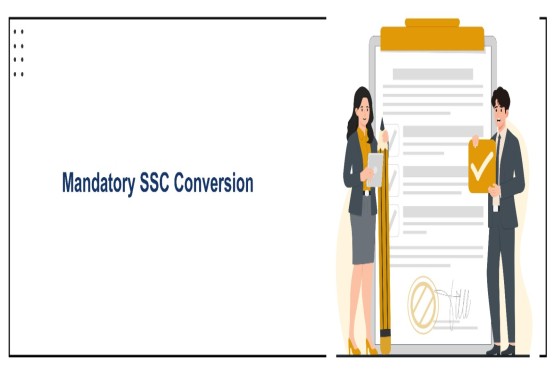The Securities and Exchange Board of India(SEBI), through its circular SEBI/HO/MIRSD/MIRSD-PoD-1/P/CIR/2025/004 dated January 8, 2025, has introduced a new regulatory requirement mandating the maintenance of a security deposit by SEBI-registered Research Analysts (RAs), a move aims to enhance investor protection, reinforce accountability, and streamline dispute resolution mechanisms under the regulatory purview of SEBI and RAASB (Research Analyst Administration and Supervisory Body).
Earlier, RAs were required to maintain a minimum net worth of Rs.1 lakh (individual) or Rs.25 lakhs (body corporate) and submit a Net Worth Certificate from a CA annually and to ease the process for registration of Research Analyst with SEBI at initial stage. However, with the introduction of the deposit-based compliance mechanism after the 2024 SEBI RA/RIA amendment, the requirement has been replaced. Now:
-
Compliance is ensured through a Fixed Deposit (FDR) based on the number of clients.
-
The FDR is held with a lien in favor of BSE (RAASB).
-
No net worth certificate from CA is required under the new deposit needed while filing an application with BSE for registration.
Objective of the Deposit Requirement
The deposit requirement is designed to:
-
Strengthen the SEBI regulatory framework governing RAs;
-
To check that Research Analysts operate with financial prudence;
-
Create a corpus for covering unpaid dues that may arise from arbitration or conciliation processes;
-
Establish better oversight and deterrence against default in service obligations.
Applicability and Effective Date
The circular is applicable to:
-
All existing SEBI-registered Research Analysts, who must comply with the new deposit norms by April 30, 2025;
-
All new applicants for Research Analyst registration, for whom the requirement is effective immediately from the date of the circular, i.e., January 8, 2025.
Deposit Structure Based on Client Count
The amount of deposit to be maintained is linked to the maximum number of clients handled by the RA during any single day of the preceding financial year and the slab-wise deposit requirement is as follows:
|
Maximum Number of Clients (Previous FY) |
Required Deposit Amount |
|
Up to 150 clients |
Rs.1,00,000 |
|
151 to 300 clients |
Rs. 2,00,000 |
|
301 to 1,000 clients |
Rs. 5,00,000 |
|
1,001 and above |
Rs. 10,00,000 |
Deposit Maintenance
As per SEBI's directives and guidelines issued by RAASB (BSE Limited), the deposit must be maintained in the form of a Fixed Deposit Receipt (FDR) with the following conditions:
a) Designation of the FDR: The FDR must be issued in the name of: “BSE Ltd. A/c. [Name of the Research Analyst]”
b) Scheduled Bank Requirement: The FD should be maintained with any scheduled commercial bank listed in Annexure-1 of the BSE guidelines and a lien must be marked in favor of “BSE Limited”.
c) Term and Renewal of Deposit
-
The deposit shall have a minimum maturity period of 5 years.
-
The bank must be instructed to auto-renew the principal amount.
-
Interest accrued shall be credited to the RA’s account. If no such instruction is given, both the principal and interest must be renewed.
Documentation and Submission Protocol
The Research Analyst is required to adhere to the following documentation norms:
Submission to BSE
-
Soft copy of the FDR must be sent to: ra.membership@bseindia.com
-
The subject line must clearly read:
“FDR towards deposit - [Name of the Entity]”
Physical Document Dispatch
-
The original FDR must be:
-
Duly discharged by affixing a revenue stamp of Rs.1 on the reverse;
-
Signed and stamped by the authorized signatory;
-
The original FDR, along with:
-
A letter from the Bank in Annexure-2 format;
-
Covering letter by RA;
-
Must be submitted to BSE’s regional or head office as listed in Annexure-3.
Bank Letter Format
-
The format of the FDR issuance letter from the bank must conform to the Annexure-4 guidelines provided by BSE.
d) Renewal Process
-
Renewal letter as per Annexure-5 must be obtained by the RA from the Bank before maturity and submitted to BSE in a timely manner.
-
BSE will also issue automated reminders to ensure timely renewals.
Annual Revision Based on Client Count
The deposit requirement is not static and is subject to annual review, involved are:
a) Timeline: RAs must re-evaluate their maximum client count during the previous financial year and adjust the deposit accordingly by April 30 of the following year.
b) Adjustment Protocol
Depending on the change in the number of clients, the RA has the following options:
-
Increase in Clients:
-
Submit an additional FDR for the incremental deposit amount; or
-
Submit a new consolidated FDR reflecting the total required deposit. Upon submission, the earlier FDR will be returned.
-
Decrease in Clients:
-
Submit a new lower-value FDR as per the revised category; or
-
Continue maintaining the higher-value deposit at their discretion. If a new reduced FDR is submitted, the earlier one will be released.
Utilisation of Deposit in Default Scenarios
The fixed deposit maintained by a SEBI-registered Research Analyst (RA) under the new regulations is not just a compliance formality which plays a major risk mitigation role for regulatory authorities and investors and it is designed to ensure that even in cases where an RA defaults on their financial or legal obligations, there is a financial buffer in place to protect stakeholders and uphold regulatory enforcement and detailed explanation of how the deposit may be used for-
Arbitration or Conciliation Defaults
Research Analysts are expected to resolve disputes with clients or other parties through SEBI-mandated mechanisms such as the Online Dispute Resolution (ODR) platform. If an RA fails to comply with:
-
An arbitration award,
-
A conciliation settlement,
-
Or any financial liability determined by the resolution mechanism, then the deposit can be invoked to recover such dues.
Example:
Suppose a client wins an arbitration award for Rs.75,000 against an RA, and the RA fails to pay within the stipulated time. In that case, BSE (as the RAASB) can utilize the RA’s fixed deposit to disburse the award amount to the claimant.
Recovery of Regulatory Dues
If the RA has any outstanding obligations towards SEBI or RAASB (BSE), the deposit can be used to recover such dues. These may include:
-
Unpaid fees (registration or annual),
-
Penalties imposed for non-compliance,
-
Costs of investigation or enforcement,
-
Late submission fines, or
-
Any other statutory levies.
Additional Points to Note
-
SEBI retains the right to review and revise the deposit norms at any time in the future.
-
Non-compliance with deposit norms will result in regulatory consequences, which may include suspension or cancellation of RA registration.
-
Any disputes or delays in submitting the FDR or fulfilling deposit conditions may hinder new applications or trigger compliance audits for existing RAs.
Implications for RAs
This deposit requirement brings several strategic and operational implications for RAs:
-
Financial Planning: RAs, especially those with large client bases, need to ensure liquidity to furnish sizable deposits.
-
Operational Diligence: Accurate tracking of client numbers and timely renewal of FDRs becomes a vital compliance function.
-
Client Categorization: RAs should maintain a clear record of client engagement and service categorization to validate deposit tiering if queried by BSE/SEBI.
Compliance Calendar LLP Support
At Compliance Calendar LLP, we assist Research Analysts through:
-
Determining applicable deposit category based on historical client records;
-
Coordinating with banks for compliant FDR issuance and renewal;
-
Drafting all necessary documentation including Annexure formats;
-
Facilitating submission to BSE and follow-up for acknowledgment;
-
Advising on annual deposit adjustments and compliance reporting.
We allow or provide end-to-end support in SEBI registration for RA or RIA including compliances, so that your registration remains valid and compliant with the latest SEBI regulations and by the introduction of a mandatory deposit requirement in place of Net-worth certificate for SEBI-registered Research Analysts marks a significant evolution in the governance of securities research in India. It reflects SEBI’s broader objective to enhance investor confidence, improve industry discipline, and promote transparency in market conduct. While this adds a new layer of compliance, it also assures greater institutional credibility for RAs. With the help of Compliance Calendar LLP by timely compliance to this requirement and maintaining diligent records, Research Analysts can continue to serve the investing public effectively while staying on the right side of regulatory mandates. Please write to us at info@ccoffice.in or connect at 9988424211 for any help regarding SEBI RA or SEBI RIA services.
Also Learn here how to to get NISM certification for SEBI RA Registration

_learn_crop6_thumb.jpg)









































































_crop10_thumb.jpg)


































































_crop10_thumb.jpg)
_crop10_thumb.jpg)



_crop10_thumb.jpg)


_crop10_thumb.jpg)





_crop10_thumb.jpg)

_crop10_thumb.jpg)














-suratgujarat-section-158_crop10_thumb.jpg)
-suratgujarat_crop10_thumb.jpg)
-(33)_crop10_thumb.jpg)



-ahmedabad_crop10_thumb.jpg)
-learn_crop10_thumb.jpg)

-learnn_crop10_thumb.jpg)



























































_crop10_thumb.jpg)























_Guidelines_learn_crop10_thumb.jpg)























_learn_crop10_thumb.jpg)
_crop10_thumb.jpeg)










_crop10_thumb.jpg)




_Second_Amendment_Rules,_2025_learn_crop10_thumb.jpg)



















































_learn_crop10_thumb.jpeg)























_learn_crop10_thumb.jpg)



_rd_roc_learn_crop10_thumb.jpg)
















_learn_crop10_thumb.jpg)














_learn_crop10_thumb.jpg)
_Learn_crop10_thumb.jpg)











































_learn_crop10_thumb.jpg)




_learn_crop10_thumb.jpg)













_crop10_thumb.jpeg)


















